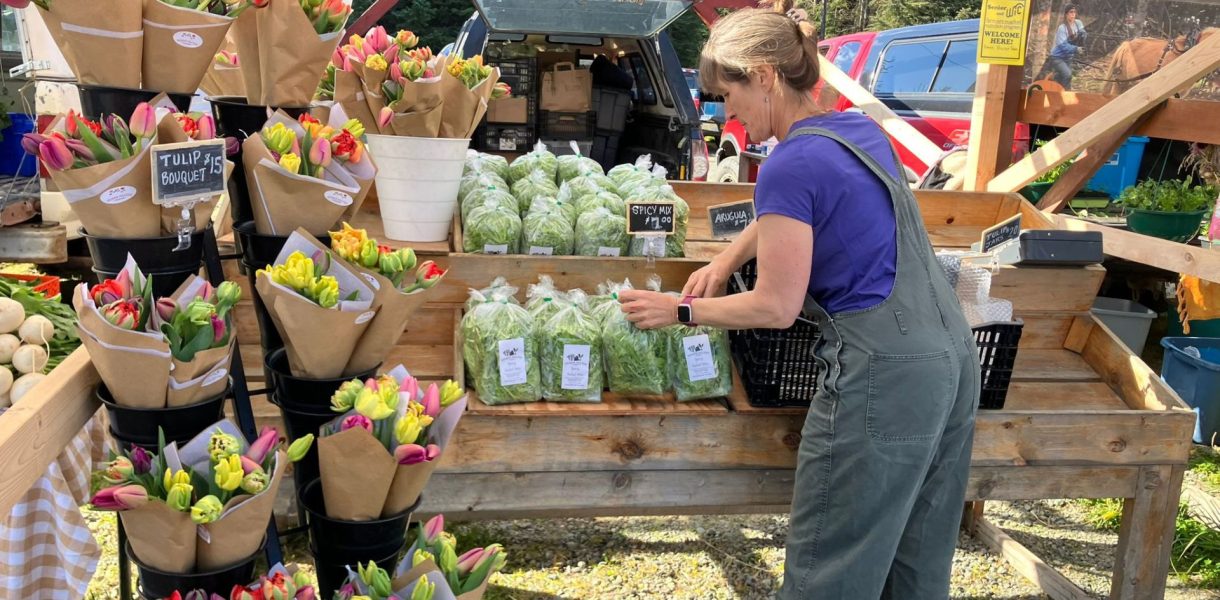The Guiding Principles of the World Farmers Markets Coalition
At the heart of the World Farmers Markets Coalition lie a series of values and principles that recognize the fundamental role of farmers in feeding the planet, preserving biodiversity, and sustaining local economies. These principles guide our mission and shape our vision for a more equitable, sustainable, and community-rooted food system.
Recognizing Farmers as Stewards of the Planet
Family farmers are the backbone of global food production, yet their contribution is often overlooked. Despite producing a significant share of the world’s food, they are among the most vulnerable actors in the agricultural sector. Family farming plays a key role in maintaining traditional food systems, supporting balanced diets, and preserving agrobiodiversity. These farmers are custodians of local knowledge, with practices adapted to specific ecological contexts. Their innovative, complex land management techniques allow productivity even on marginal soils and contribute significantly to ecosystem services. Strengthening family farming not only enhances food security but also revitalizes rural economies—especially when supported by social protection policies and community-focused development initiatives.
Global Snapshot of Family Farming:
- Over 500 million family farms worldwide
- Represent more than 98% of agricultural holdings
- Account for at least 56% of agricultural production across 56% of cultivated land
- Regional distribution of family farming: 85% in Asia, 62% in Africa, 83% in North and Central America, 68% in Europe, and 18% in South America
(Source: FAO)
Defending Local Food Systems
Local food systems are increasingly sacrificed in favor of free trade mechanisms that strip farmers of their economic autonomy. In today’s global economy, trading standardized commodities across borders has become remarkably streamlined. Yet, paradoxically, small-scale farmers still face significant obstacles when it comes to selling their own products directly to consumers. These barriers, be they logistical, regulatory, or infrastructural, highlight a deep imbalance in how food systems support large-scale trade over local empowerment. These systems, rooted in community, culture, and proximity, are essential to resilient food networks. They ensure fairer distribution of value along the supply chain and empower producers to live from their labor. At farmers markets, it’s often women and young farmers who engage directly with consumers. They are the visible face of local food in the city building relationships, trust, and understanding. Their central role in these spaces is quietly transformative, challenging conventional hierarchies within the agri-food supply chain and shifting who holds visibility and voice in how food reaches our tables. Reinforcing local food systems means placing people and land before profit.
Restoring Biodiversity Through Fair Income
Biodiversity loss is not inevitable. In fact, it can be reversed—but only if farmers are given the means to sustain it. Supporting biodiversity means recognizing that conservation cannot rely solely on protected areas or regulations. It must begin with the livelihoods of those who live from the land. When farmers are fairly compensated, biodiversity thrives—not as an abstract ideal, but as a living system supported by daily agricultural practices. Senatore Cappelli is a heritage variety of durum wheat that originated in Italy and was officially introduced in 1915. By the 1950s, it was largely replaced by modern durum wheat varieties, which offered higher yields and better processing performance making pasta production more efficient and cost-effective, though at the expense of flavor and nutritional quality. As a result, Senatore Cappelli gradually disappeared from mainstream agriculture. However, in recent years, it has been rediscovered and brought back into cultivation by farmers at local farmers markets, thanks to its reputation as a superior grain. Once used only by a handful of producers, Senatore Cappelli is now enjoying a renaissance, with even major food companies choosing it for pasta, bread, and pizza due to its notable health benefits and exceptional taste.
Resisting Land Grabbing in All Its Forms
We firmly oppose all forms of land dispossession, whether through military force, economic pressure, or opaque investment schemes. Land grabbing refers to the large-scale acquisition of agricultural land by foreign or corporate entities, often at the expense of local communities. It displaces populations, undermines local food sovereignty, and depletes natural resources.
But land grabbing is not only an economic or environmental issue, it is also a direct assault on peace. The occupation and exploitation of land without the consent of its stewards sows division, heightens social tensions, and fuels conflict. When people are uprooted from their land and denied access to the resources that sustain them, entire communities are destabilized. Such practices fracture the social fabric, inflame historical grievances, and undermine the potential for dialogue, reconciliation, and peaceful coexistence. Land justice, therefore, is not only a matter of fairness, it is a precondition for lasting peace.
Land Grabbing by the Numbers:
Globally, 1,162 land deals have been recorded, affecting 78 million hectares of land mainly in Africa. Among the countries most targeted by these deals are Ethiopia, Mozambique, and Romania.
(Source: ActionAid)
Globally, land grabbing is driven by interests in forest exploitation (40%), mining (33%), and industrial agriculture (26%). Russia, Peru, and the Democratic Republic of Congo are among the top targets, while the leading investors are based in Western countries, followed by China, Japan, and Singapore.
(Source: Asvis)
Upholding Cultural Integrity and Food Dignity
We believe that every community has the right to nourish itself according to its traditions, values, and ecosystems. Promoting dignified diets means protecting not only farmers’ land but also the cultural identities that are intrinsically linked to food. Supporting indigenous food systems, local seeds, and traditional recipes is essential for cultural resilience and ecological health.
Author: Carmelo Troccoli






